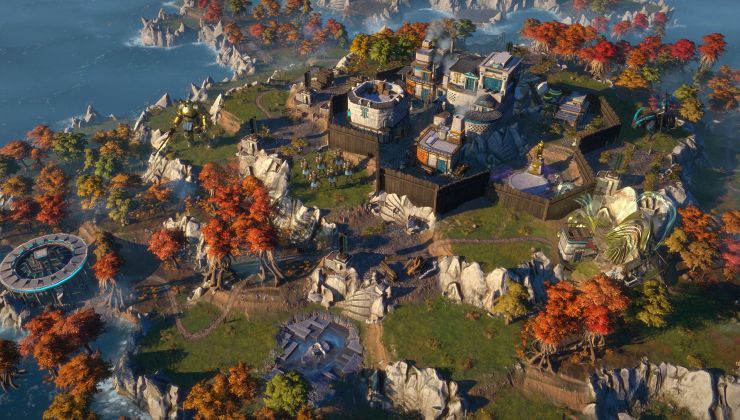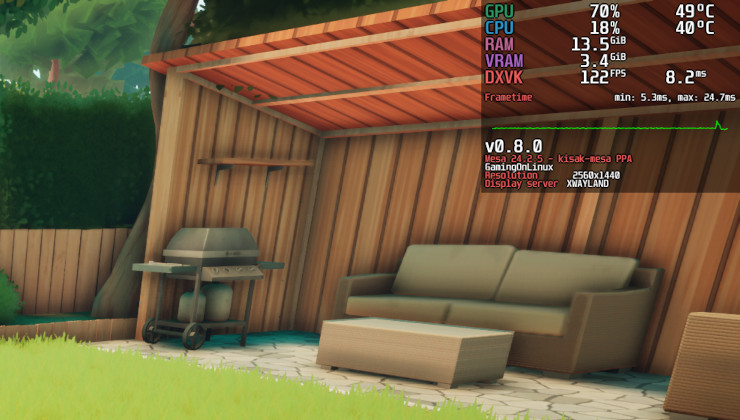This is your once a month reminder to make sure your PC information is correct on your user profiles. A fresh batch of statistics is generated on the 1st of each month.
You need to be logged in to see when you last updated your PC info!
You can see the statistics any time on this page.
If you want your details to actually be included in the monthly survey, be sure to head here and tick the box labelled "Include your PC details in our Monthly User Statistics?" and hit the "Update" button at the bottom, it's opt-in and you can uncheck it at any time not to be included in future statistics gathering.
PC Info is automatically purged if it hasn't been updated, or if you don't click the link to remain in for 2 years. This way we prevent too much stale data and don't hold onto your data for longer than required. If this is still correct and it has been a long time since you updated, click here to continue to be included. If this isn't correct, click here to go to your User Control Panel to update it!




 How to set, change and reset your SteamOS / Steam Deck desktop sudo password
How to set, change and reset your SteamOS / Steam Deck desktop sudo password How to set up Decky Loader on Steam Deck / SteamOS for easy plugins
How to set up Decky Loader on Steam Deck / SteamOS for easy plugins
So I don't need to click every month, every year or so is enough, right?
Edit: Nevermind, just saw the [trends](https://www.gamingonlinux.com/index.php?module=statistics&view=trends) view!
Last edited by Creak on 25 Mar 2019 at 11:11 am UTC

See you in December 2022 :D
So GoL users... what's our opinions on this? For me, I think 8GB RAM on Linux are nearly to it's limit but still enough for at least 1-2 years..
FYI, Firefox (my default browser) in my computer are running at 100 - 300 MB, Vivaldi 100 - 500MB (as it's basically a modified Chrome, correct me if I'm wrong) and Midori at 50 - 200 MB. Usually, I'm running 1-3 tabs on Firefox and rarely exceed 10 tabs. Not using Chrome/Chromium anymore since late 2016.
I'd say 16 GB is a norm today, to be able to run most games comfortably. I personally like building stuff in different VMs, so prefer even more.
Trends are hard to predict, due to specific hardware releases having a bigger impact. For example I expect AMD adoption to accelerate after Navi and Zen 2 will come out.
Last edited by Shmerl on 25 Mar 2019 at 4:00 pm UTC
I run the latest games on my 8 year old desktop that has 6GB of ram with no issues.
I have a GeForce 950 and I can run most games on the highest or close to highest settings with 30 FPS.
It also helps that KDE is great with memory these days compared to Windows.
However I don't think you would see much difference by upgrading from 8 GB to 16 GB right now, unless you are constantly multitasking while gaming. 8 GB RAM and 4 GB of swap on a reasonably fast SSD is often good enough in my experience. Enabling zswap (add zswap.enabled=1 to kernel parameters) may reduce the actual swap usage while still being able to free RAM for active applications.
I am seriously want to upgrade or buy a new PC this year but as modern CPU no longer supports Win XP, I'm kinda 50:50.
I want to learn about VM because most old school phones' for PC software backup such as Sony Ericsson PC Suite/PC Companion, Nokia PC Suite/Link and Samsung Kies (for non-Android) runs stably on Win XP.
Hope y'all or anyone please give some advice.. Thanks guys..
I prefer to use Qemu/KVM + libvirt for that purpose. virt-manager is a good GUI solution for it.
Figuring out stuff though can take time, but it's worth it.
See: https://virt-manager.org
Start with installing virt-manager, it usually pulls qemu and kvm related packages already. The basic functions in the UI are pretty straightforward, and there are various tutorials and tips on more complex ones, which you can find around the net.
You can use local user qemu session first, to avoid more complex system level qemu session (virt manager provides a choice which session to connect to). Make sure your user also belongs to libvirt and kvm groups:
sudo usermod -a -G libvirt,kvm your_userLast edited by Shmerl on 5 Apr 2019 at 2:04 am UTC
I hesitated to try WM because based on reading news and etc., is most VM softwares are paid/subscription software. So my thought/perception that VM needs to be pirated.
Certainly, I'm kinda noob on VM but I will trying out virt-manager and GNOME boxes (or any suggestion y'all gave me).
Last edited by Shmerl on 5 Apr 2019 at 2:25 am UTC